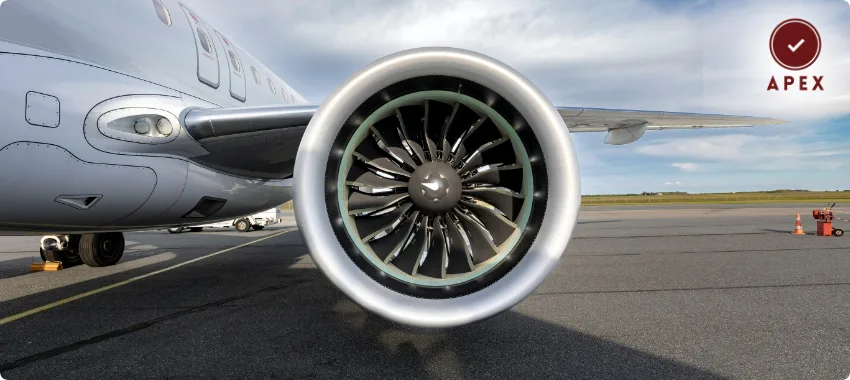ISO Certifications for the Aerospace Industry

The aerospace industry plays a pivotal role in the global economy which includes design, manufacturing, and maintenance of aircraft, spacecraft, and related systems. Companies in this sector are continually evolving to improve performance, safety, and environmental sustainability. Obtaining ISO certifications is essential for aerospace companies to demonstrate compliance with international standards and enhance their credibility.
NACE Codes
The Aerospace industry has the following NACE codes:
- NACE Code 30.30: Manufacture of air and spacecraft and related machinery. This classification covers the production of aircraft, spacecraft, and associated machinery. It includes the manufacturing of commercial and military airplanes, helicopters, drones, and space exploration vehicles.
IAF Codes
The IAF (International Accreditation Forum) also categorizes ISO certifications based on industry sectors. For aerospace, the following IAF codes are relevant:
- IAF Code 34: Aerospace Industry. This code covers various ISO certifications applicable to the aerospace sector, including ISO 9001:2015 and AS9100, which are particularly valuable for manufacturers, suppliers, and service providers in the aerospace industry.
Top ISO Certifications for this sector
The aerospace sector benefits greatly from ISO certifications, ensuring that their operations adhere to global quality, safety, and environmental standards. Some key ISO standards include:
- ISO 9001:2015: Ensures the consistency and quality of products and services.
- AS9100: Requirements for Aviation, Space, and Defense Organizations – Focuses on the specific needs of the aerospace industry.
- ISO 14001:2015: Helps aerospace companies minimize environmental impact.
- ISO 45001:2018: Ensures a safe working environment for employees involved in aerospace manufacturing and maintenance.
Why ISO Certification Matters in Aerospace
- Enhanced Product Quality: Aerospace companies rely on precision and reliability, which ISO certifications help standardize.
- Improved Safety Standards: Compliance with ISO 9001:2015, AS9100, and other standards ensures adherence to rigorous safety protocols.
- Global Recognition: ISO certification is globally recognized and helps aerospace companies expand into international markets, demonstrating their commitment to quality and regulatory compliance.
- Customer Confidence: With ISO certifications, aerospace companies can assure clients, including governmental and commercial entities, that their processes meet global standards.
Getting ISO Certified in the Aerospace Industry
The journey to ISO certification for aerospace companies typically follows these steps:
- Consultation and Gap Analysis: Understanding existing processes and identifying areas that require improvement.
- Documentation: Establishing quality management systems, safety protocols, and environmental management systems.
- Implementation: Ensuring all employees are trained, and the necessary infrastructure is in place to meet ISO standards.
- Certification Audit: External audits by an IAF / EIAC accredited certification body to verify compliance, leading to the award of the ISO certificate.
Benefits of ISO Certification for Aerospace Companies
- Operational Efficiency: Streamlining processes, reducing waste, and improving resource management.
- Market Expansion: Gaining access to new markets by meeting international quality standards.
- Regulatory Compliance: Staying ahead of regulations and ensuring compliance with safety and environmental standards.
ISO certifications for the aerospace industry not only ensure high standards of quality and safety but also build a reputation that opens doors to new opportunities. Whether you are a manufacturer of aircraft or a service provider, investing in ISO certification strengthens your competitive edge and global presence.
- ISO 9001 Certification
- ISO 14001 Certification
- ISO 45001 Certification
- HACCP Certification
- ISO 22000 Certification
- ISO 22716 Certification
- Halal Certification
- ISO 27001 Certification
- ISO 22301 Certification
- ISO 41001 Certification
- ISO 50001 Certification
- ISO 10002 Certification
- ISO 10004 Certification
- ISO 26000 Certification
- ISO 31000 Certification
- ISO 20400 Certification
